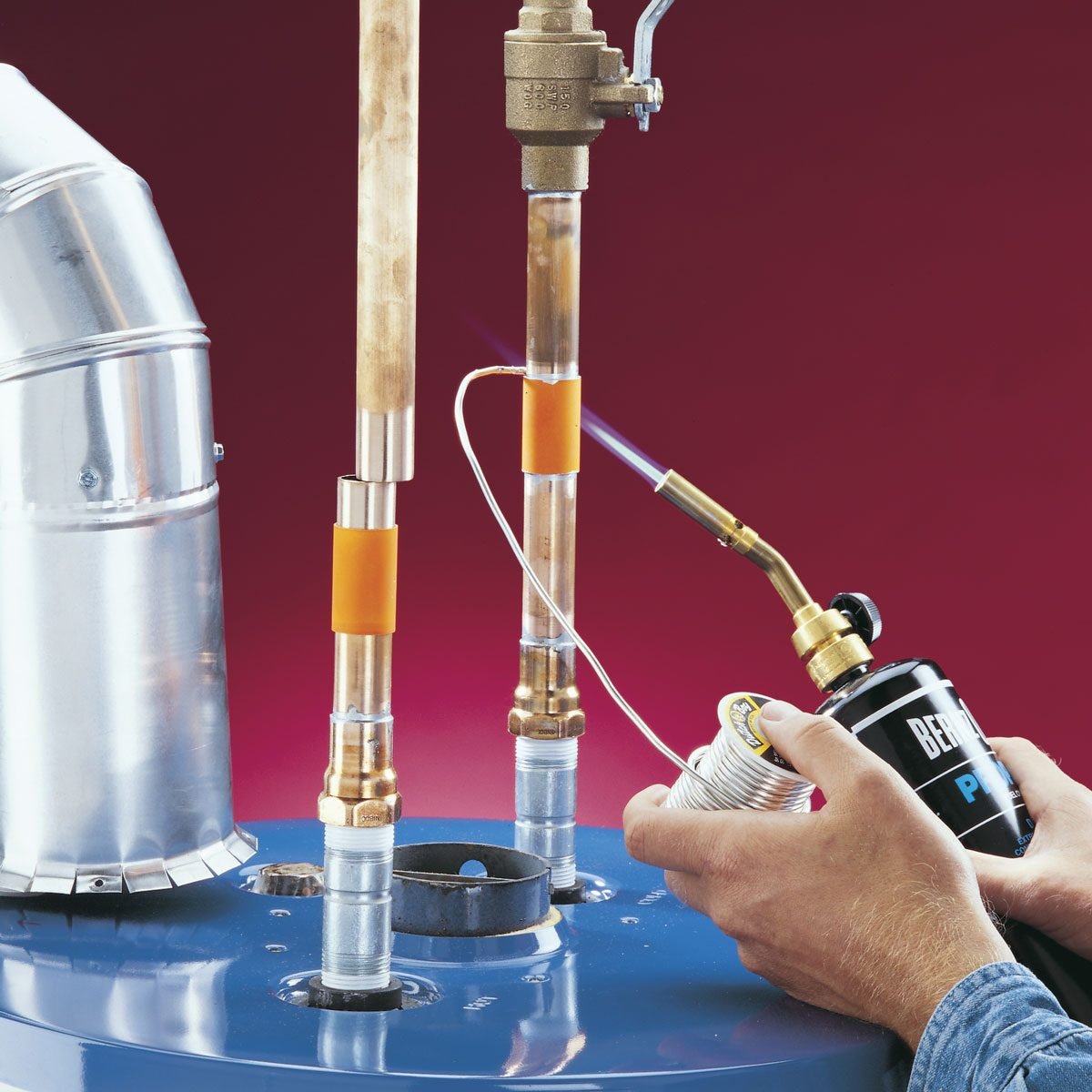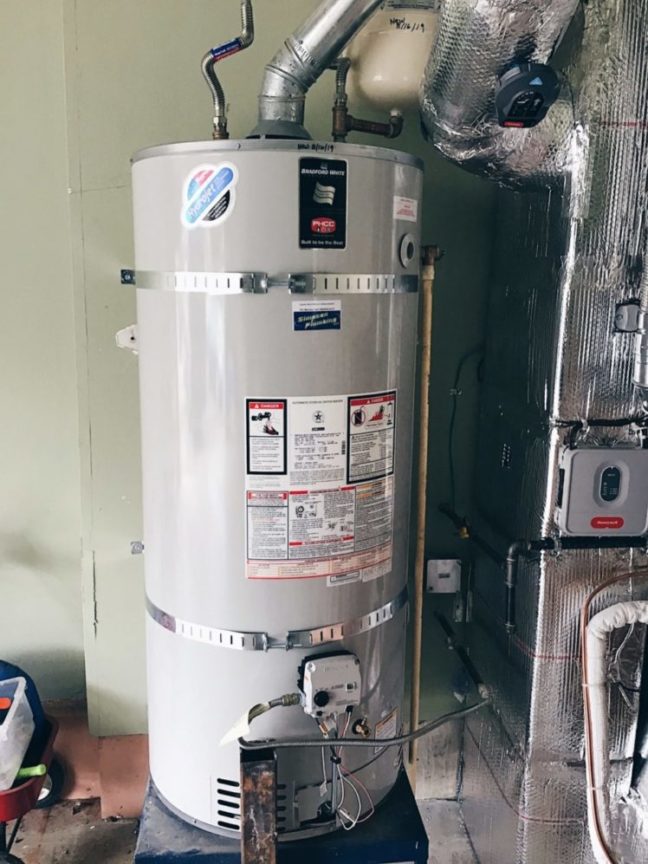Experienced Plumber Denton Offering 24/7 Plumbing Services
Experienced Plumber Denton Offering 24/7 Plumbing Services
Blog Article
Full Guide to Water Heating UnitInstallment and Replacement
Understanding the intricacies of water heater installation and replacement is crucial for property owners seeking to make sure effectiveness and dependability in their warm water supply. From choosing the proper kind and size to performing a seamless installation process, several factors have to be taken into consideration to stay clear of common challenges.
Sorts Of Water Heaters
When considering water heating system setup and replacement, it is important to understand the numerous kinds of water heaters readily available in the marketplace. One of the most common kinds include tank hot water heater, tankless hot water heater, heatpump water heating units, and solar water heaters.
Tank hot water heater are typical systems that save a specific volume of warm water, making them easily available when required. They are usually less pricey upfront however may incur greater energy prices in time as a result of warm loss. In contrast, tankless water heating units provide warm water as needed, getting rid of the requirement for storage. They are energy reliable and can conserve room, yet their first prices are normally greater.
Heatpump water heaters use electrical power to move warm from the air or ground to heat water, supplying considerable power savings however requiring more area and particular setup conditions. Solar water heating units harness solar power to warmth water, giving an environmentally friendly choice with prospective long-lasting expense savings, although they commonly call for a back-up system for cloudy days.
Recognizing these alternatives makes sure notified decisions concerning installation and substitute, dealing with details demands and preferences.
Selecting the Right Size
Choosing the proper size for a hot water heater is vital to ensure ideal performance and effectiveness. A device that is as well small will battle to satisfy home demands, bring about irregular warm water accessibility and enhanced energy consumption. Alternatively, an extra-large hot water heater can lead to unnecessary energy waste and higher energy expenses.
To determine the appropriate dimension, consider the home's peak warm water use. This can be determined based on the number of residents and their common warm water needs. For example, a family of four might require a water heating system with a capability of 50 to 80 gallons, relying on the usage patterns, such as synchronised showers and washing.
In addition, analyze the healing rate, which gauges how quickly a heating unit can replenish hot water after it has actually been used. For tankless designs, concentrate on the circulation rate, determined in gallons per min (GPM), to ensure it fulfills the home's simultaneous demand.

Setup Process Introduction

Following, the old system needs to be detached and gotten rid of, making sure to adhere to neighborhood codes and policies relating to disposal. When the old system is out, the brand-new hot water heater can be placed in position. This action involves attaching the water system lines, ensuring that all installations are leak-free and safe.
After establishing water links, it's necessary to attach the power supply, go to this site whether electric or gas, adhering to the producer's guidelines meticulously. When all links are made, the system ought to be full of water, and the power can be turned back on. Lastly, it is very important to inspect for leakages and ensure the water heating unit is operating correctly prior to completing the installment process.
Typical Setup Blunders

Another regular mistake is ignoring to follow local codes and laws. Failing to stick to these standards can not just lead to security risks yet may likewise cause costly fines or the demand for costly reinstallation. Furthermore, inappropriate venting is a critical problem. Poor ventilation can create dangerous you can try this out gas build-up, presenting severe wellness risks.
Wrong plumbing connections are additionally a prevalent error. Failing to protect connections or using the wrong sort of installations can result in leakages and water damage. Moreover, overlooking the relevance of an appropriate drain frying pan can result in considerable water damage if leaks do take place. Insufficient insulation of pipelines can lead to warmth loss, lowering performance. By avoiding these typical installation blunders, property owners can guarantee their water heater runs securely and efficiently, making best use of efficiency and durability.
Upkeep Tips for Durability
Proper maintenance of a hot water heater is crucial for its longevity and optimum efficiency. Routine assessments and servicing can stop expensive repair work and extend the device's lifespan. Begin by inspecting the temperature setup; it should normally be established between 120 ° F and 140 ° F for optimum energy performance and safety.
Every 6 months, flush the storage tank to get rid of sediment build-up, which can impair heating performance and cause rust. To do this, switch off the heater, link a hose to the drainpipe shutoff, and let the water run up until it is clear.
Anode poles ought to be evaluated every year and changed when they are corroded. These rods help prevent container rust by attracting corrosive elements in the water.
In addition, examine the stress safety valve on a regular basis to ensure it is functioning properly. This shutoff is important for protecting against too much stress buildup within the storage tank.
Last but not least, think about scheduling a specialist upkeep check every couple of years for detailed assessments and servicing. By adhering to these maintenance tips, property owners can considerably improve the effectiveness, security, and life expectancy of their water heating units, making certain reliable warm water for many years to find.
Final Thought
In conclusion, correct setup and maintenance of water heaters are critical for ensuring efficiency and long life. By recognizing these essential aspects, property owners can accomplish a reputable hot water supply while minimizing possible problems associated to water heating unit procedure.
Recognizing the intricacies of water heating unit installation and substitute is vital for home owners seeking to make sure performance and dependability in their warm water supply.Tank water heating units are traditional systems that keep a specific volume of warm water, making them readily available when required. In comparison, tankless water heaters offer warm water on need, eliminating the requirement for storage space. Picking a water heater that is either as well tiny or also large can lead to ineffectiveness, resulting in inadequate warm water supply or extreme energy usage.
By understanding these crucial facets, house here owners can attain a reputable warm water supply while decreasing potential issues related to water heater operation. drain cleaning.
Report this page